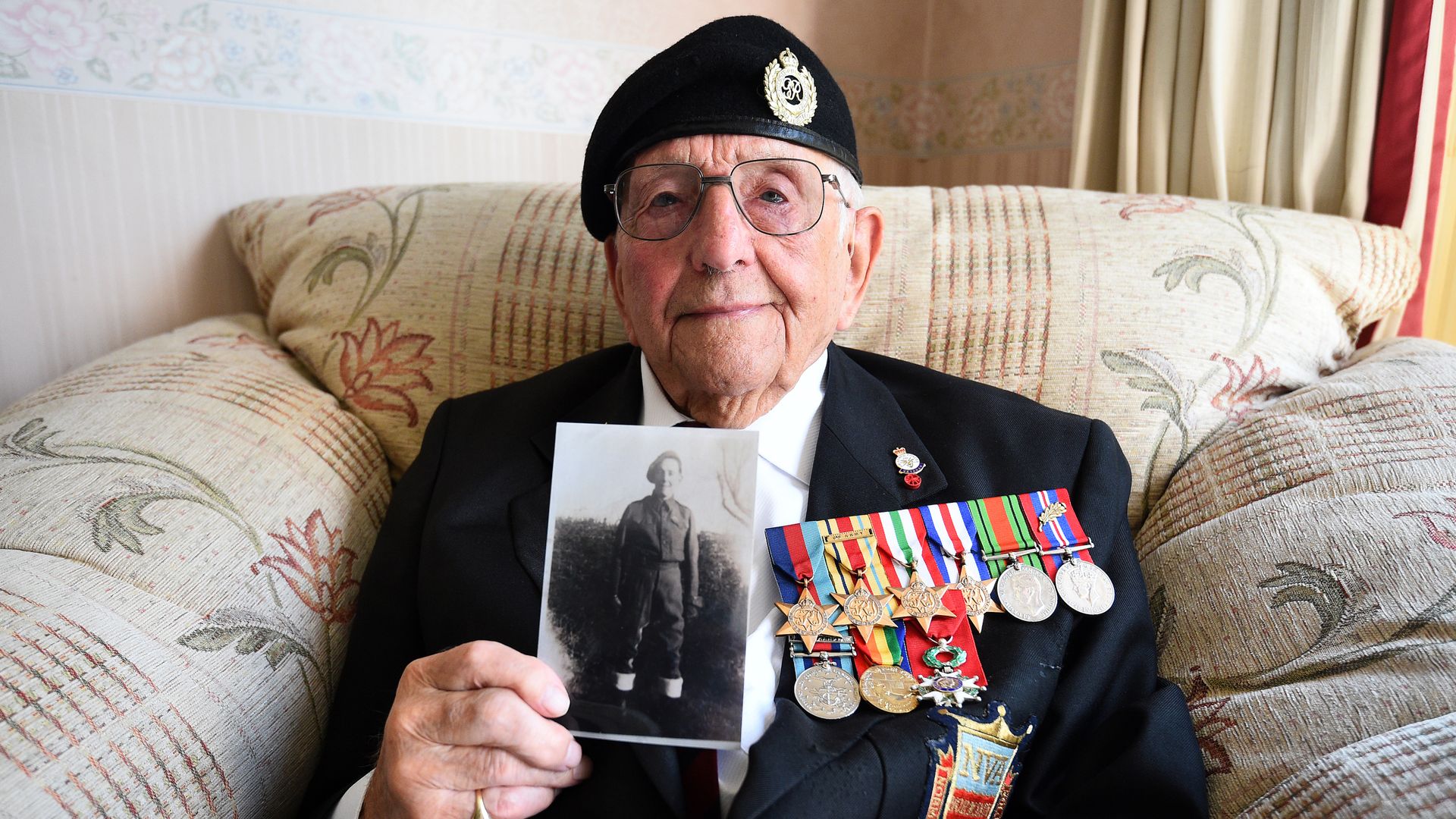A D-Day veteran who helped liberate the Bergen-Belsen Nazi concentration camp has died at the age of 104.
Donald “Don” Sheppard landed on a ship tank on Normandy’s Juno beach on 6 June 1944.
A dispatch rider for the Royal Engineers, he was one of the 156,000 British, American, and Canadian troops who landed by air and sea that day.
D-Day, which marked its 80th anniversary this year, became one of the most successful military operations in history – paving the way for the liberation of France and, combined with the Soviet advance in the east, the end of the Second World War.
Between 4,000 and 9,000 Allied troops are estimated to have died.
On Sunday, the British Normandy Memorial announced Mr Sheppard’s death on X.
“We are saddened to hear of the death of 104-year-old D-Day veteran Donald Sheppard,” it posted.
“Donald attended the virtual opening of the Memorial in 2021 and features in the Winston Churchill Centre Royal British Legion exhibition. Thinking of Donald’s wife Sandra & family. Rest in Peace, Don.”
Read more
D-Day veterans – now and then
Tom Hanks speaks at D-Day memorial
The best and worst D-Day films – judged by experts
After Mr Sheppard and his peers landed on French soil in June – they broke Nazi lines in August and continued to Belgium, Holland, and Germany.
In Germany, he was one of those who worked to liberate the Bergen-Belsen concentration camp – where more than 70,000 people, most of them Jewish or Soviet prisoners of war, were killed.
Keep up with all the latest news from the UK and around the world by following Sky News
Anne Frank and her sister, Margot, both died in the camp, having contracted typhus in the cramped conditions.
‘A waste of life’
Speaking at home in Basildon, Essex, in 2019, Mr Sheppard described the D-Day operation as a “waste of life” but acknowledged it was “so important” in ending the war.
“I know we had to defend ourselves… but young guys like me 20, 21, who never lasted five minutes, some of them got killed before they got off the boat. Tragic, absolutely,” he said.
When he arrived at Juno beach, around 4.30pm, Mr Sheppard said the Germans had “really got the distance and shells were coming over like rain”, with battleships also firing over their heads.
“We lost quite a few guys,” he said.
Be the first to get Breaking News
Install the Sky News app for free
Describing the scenes once he reached the Nazi concentration camp, he added: “I shall never forget that for the rest of my life. How one human could do that to another.”
Mr Sheppard’s only injury throughout the entire war was a cut to his leg as he sheltered from German bombs in a ditch.
Some 70 years later, however, unrelated medical scans found a piece of shrapnel in his lung, which never caused him any health problems.






